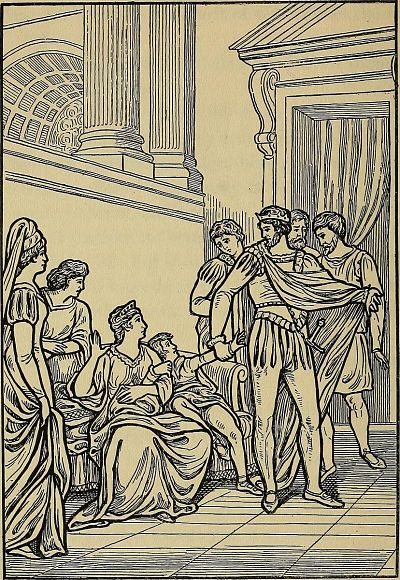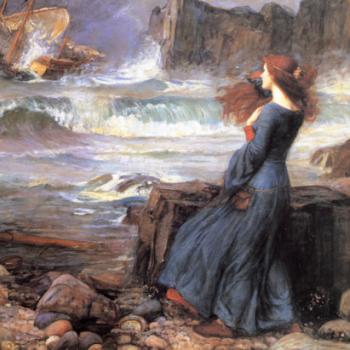 It should be a tragedy, because envy and revenge always end in tragedy. They are the work of devils and Satan always comes to steal and destroy. The Winter’s Tale does not end in death, but in marriages, the mark of a classical comedy, and so the author, William Shakespeare, reminds his audience that all tragedy in this life is (eventually) made whole in the Wedding of God and man.
It should be a tragedy, because envy and revenge always end in tragedy. They are the work of devils and Satan always comes to steal and destroy. The Winter’s Tale does not end in death, but in marriages, the mark of a classical comedy, and so the author, William Shakespeare, reminds his audience that all tragedy in this life is (eventually) made whole in the Wedding of God and man.
This is very practical, because very true.
It is very easy for jealous men to stir up envy and resentment. When these snakes, these wormtongues, do this then the happiest situation can become horrible fast. Envy and jealousy cannot be defeated (it would seem), because every victory stirs up more envy and jealousy. The better things go, the more resentment is bred. Of course, eventually the object of the envy and jealousy strikes back and then the original suspicions are seemingly confirmed.
Revenge breeds death and winter comes and blasts all the hopes of happiness.
This is how the play begins, but it is not how it ends. Without spoiling the play, let me merely say that toward the end someone says: “were it but told you should be hooted at like an old tale.” Redemption is always possible, because life comes as surely as Spring.
Sin sits in the heart and breeds cynicism and dark thoughts. As a result some foolish modern people cannot find unity in the play. Vengeance is ended and loves wins, but this is “cheesy” and is just a Hallmark movie . . . an old tale that they wish to mock.
Yet this I know, because I have seen it: vengeance cannot win, nothing born of envy need triump. Love can defeat all of it. Love is strong. It will not submit to evil, but it also will not play games but the rules that the whispering accuser sets. Love sees the best, forgives as much as is possible, and then withdraws when it can stand no more.
Love endures until redemption is possible. Love bets on healing, hope, and wholeness and love wins. One of the greatest characters in all of Shakespeare, Hermione, simply will not play hatred’s game. She does not lose, because she does not accept the rules set by the whispering wormtongue, the satan in the ear of the King, who tries to pull apart her happiness.
She loves, forgives, and destroys envy. Love’s revenge is that the unhappy are forced to be happy.
Can this happen? It cannot happen quickly. Hope is deferred and our hearts are made sick. We find it hard to endure, but if we do, then we can and will be saved, even if the greatest healing comes in the next generation. Shakespeare understood that the “wise guys” of this age are always rolling their eyes at innocence, holiness, and purity, but virtue is stainless. Nothing can touch virtue. Envy virtue and she will pity, become jealous and she will invite you to share in holiness. You cannot stop spring . . . and you can hoot . . . but love is alive and is creeping up on you if you will just allow her to do so.
The first time I saw this play, over a decade ago, I could not stop crying at the end. Hope springs eternal. Hermione was right and love is alive. Give up on revenge, envy, jealousy and death. The passion that God brings us, the hope, the joy, is so overwhelming when we get even a glimpse of it, that like the old king we are tempted to ask to be led “hastily away” so we can lose ourselves in love: of the good creation, of each other, and of Him.
———————————-
I am writing (briefly) on several of Shakespeare’s plays this month to celebrate 400 years since this pious man went to God. He sees even more clearly now.












